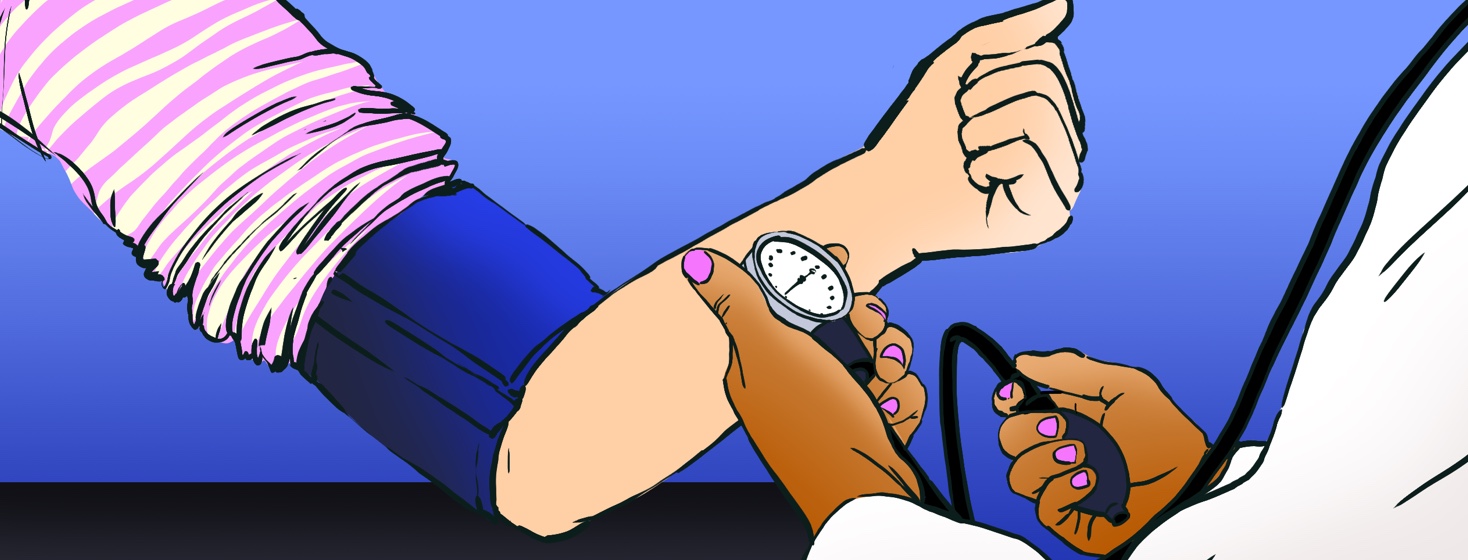How is High Blood Pressure Related to Chronic Kidney Disease?
High blood pressure, also called hypertension, can be a complication of chronic kidney disease (CKD). Hypertension can also be a risk factor for developing kidney disease. Hypertension is the second leading cause of kidney failure. High blood pressure can negatively affect your kidneys and make it more difficult for them to do their job.1,2,3
What is high blood pressure?
Hypertension is when the pressure that pushes your blood throughout the body is increased. This can put force on your blood vessels which can damage and weaken them.1
Certain risk factors may make it more likely you will develop hypertension. Risk factors include:1
- Older age
- Family history of hypertension
- A diet that is high in salt
- Drinking high amounts of alcoholic beverages
- Not getting enough physical activity
Many people with high blood pressure will not have symptoms. Hypertension is usually diagnosed by having your blood pressure taken by your doctor. If your blood pressure results are consistently higher than 130/80, you may have high blood pressure. If you are concerned about your blood pressure, talk with your doctor so you can get it checked.1
Featured Forum
View all responsesHow does high blood pressure affect the kidneys?
When you have high blood pressure, your blood vessels become weakened and damaged over time. This includes the blood vessels in your kidneys. When the blood vessels are damaged, they become more narrow. This can lead to reduced blood flow.1
Hypertension affects how well your kidneys work. When your kidney blood vessels are damaged, your kidneys cannot do their job properly. The job of your kidneys is to remove waste and extra fluid from your body. But if kidneys are damaged, they cannot remove all of the waste and extra fluid.1
This waste and extra fluid can build up which can increase your blood pressure and cause further damage to your kidneys.1
What are the effects of high blood pressure and CKD?
Over time, hypertension can lead to negative effects on your kidneys. It can become difficult for your kidneys to filter blood and regulate the fluids, hormones, acids, and salts in your body.2
Healthy kidneys also help regulate blood pressure. But when they are damaged, it becomes more difficult for the kidneys to regulate your blood pressure. This can lead to blocked arteries which can result in kidney failure.2
How can you manage high blood pressure and CKD?
To reduce the impact of hypertension on your kidneys, focus on lowering your blood pressure. This may involve a combination of treatment options but can include lifestyle changes including:1
- Eating a low-salt diet
- Quitting smoking if you smoke
- Managing your stress levels
- Maintaining a healthy weight
- Reducing alcohol consumption or stopping drinking alcohol
If you have hypertension and chronic kidney disease, talk with your doctor. Together, you can develop a treatment plan that works for you.
This or That
Are you satisfied with your current CKD treatment plan?

Join the conversation